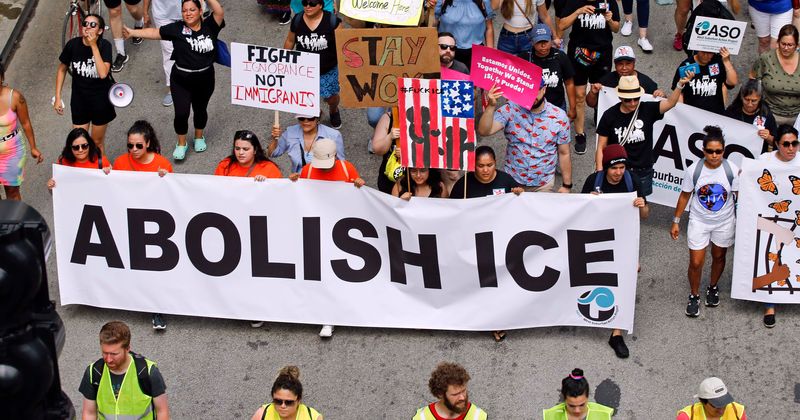Immigrant Students Face Uncertain Future After ICE Ruling
On Monday Immigration and Customs Enforcement put out a press release stating that there will be adjustments to the Student and Exchange Visitor Program (SEVP) for the Fall 2020 semester. Due to the COVID-19 pandemic, students that are on either an F-1 or M-1 visa cannot take a full online course load and remain in the United States. According to the press release:
- Nonimmigrant F-1 and M-1 students attending schools operating entirely online may not take a full online course load and remain in the United States. The U.S. Department of State will not issue visas to students enrolled in schools and/or programs that are fully online for the fall semester nor will U.S. Customs and Border Protection permit these students to enter the United States. Active students currently in the United States enrolled in such programs must depart the country or take other measures, such as transferring to a school with in-person instruction to remain in lawful status. If not, they may face immigration consequences including, but not limited to, the initiation of removal proceedings.
- Nonimmigrant F-1 students attending schools operating under normal in-person classes are bound by existing federal regulations. Eligible F students may take a maximum of one class or three credit hours online.
- Nonimmigrant F-1 students attending schools adopting a hybrid model—that is, a mixture of online and in person classes—will be allowed to take more than one class or three credit hours online. These schools must certify to SEVP, through the Form I-20, “Certificate of Eligibility for Nonimmigrant Student Status,” certifying that the program is not entirely online, that the student is not taking an entirely online course load this semester, and that the student is taking the minimum number of online classes required to make normal progress in their degree program. The above exemptions do not apply to F-1 students in English language training programs or M-1 students pursing vocational degrees, who are not permitted to enroll in any online courses.
Schools should update their information in the Student and Exchange Visitor Information System (SEVIS) within 10 days of the change if they begin the fall semester with in-person classes but are later required to switch to only online classes, or a nonimmigrant student changes their course selections, and as a result, ends up taking an entirely online course load. Nonimmigrant students within the United States are not permitted to take a full course of study through online classes. If students find themselves in this situation, they must leave the country or take alternative steps to maintain their nonimmigrant status such as a reduced course load or appropriate medical leave.
Due to COVID-19, SEVP instituted a temporary exemption regarding online courses for the spring and summer semesters. This policy permitted nonimmigrant students to take more online courses than normally permitted by federal regulation to maintain their nonimmigrant status during the COVID-19 emergency.
The PW Perspective spoke with Monica Sarimento, Executive Director of the Virginia Coalition for Immigrant Rights, and she provided the following statement:
“VACIR oppposes any initiative that limits diversity and opportunity to immigrats. The United States is dependent on immigrats for innovation. The only reason that the US leads in being the leader in Nobel Prizes is due to immigrant scholars.
ICE has failed to see the difficulties, financial burden, and complications for international students. Students could face being forced to go back to a country unprepared for coronavirus in the middle of this pandemic, not have the adequate technology to support their education, have a time difference that substantially hinders their ability to perform well in class, place unexpected financial burden due to travel, and the fear of not being able to stay healthy as students are forced to travel during a pandemic.”
“International students already face many obstacles to qualify in coming to the United States. In the US we have so many employers that desperately need a well-trained and well-educated workforce. Areas like healthcare, engineering, and science are always facing a shortage. Allowing international students is one-way America meets that need for a talented workforce and shares its wealth of knowledge with the international community for a better world. Forcing international students to leave will not just hurt the student, but it will also hurt the American the pathway for the American dream to deserving students, the American economy, and reduces the chances that America will continue to lead the world with Nobel Prizes.”
We will have more updates on this story as details become available.


